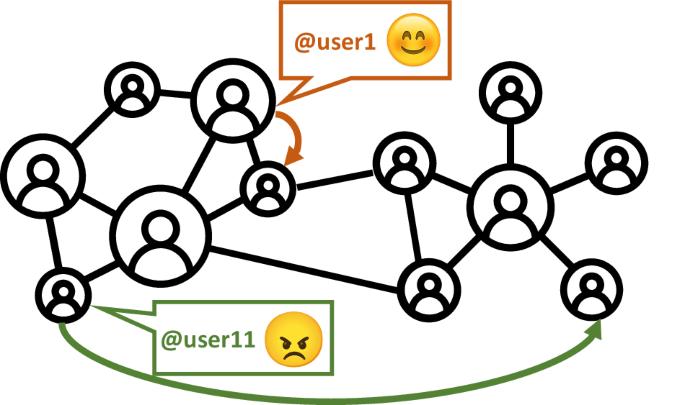Affective polarization and dynamics of information spread in online networks
引用次数: 0
Abstract
Members of different political groups not only disagree about issues but also dislike and distrust each other. While social media can amplify this emotional divide—called affective polarization by political scientists—there is a lack of agreement on its strength and prevalence. We measure affective polarization on social media by quantifying the emotions and toxicity of reply interactions. We demonstrate that, as predicted by affective polarization, interactions between users with same ideology (in-group replies) tend to be positive, while interactions between opposite-ideology users (out-group replies) are characterized by negativity and toxicity. Second, we show that affective polarization generalizes beyond the in-group/out-group dichotomy and can be considered a structural property of social networks. Specifically, we show that emotions vary with network distance between users, with closer interactions eliciting positive emotions and more distant interactions leading to anger, disgust, and toxicity. Finally, we show that similar information exhibits different dynamics when spreading in emotionally polarized groups. These findings are consistent across diverse datasets spanning discussions on topics such as the COVID-19 pandemic and abortion in the US. Our research provides insights into the complex social dynamics of affective polarization in the digital age and its implications for political discourse.

在线网络中的情感极化和信息传播动态
不同政治团体的成员不仅在问题上存在分歧,而且还相互厌恶和不信任。虽然社交媒体会放大这种情感分歧,政治学家称之为情感极化,但对其强度和普遍性还缺乏共识。我们通过量化回复互动的情绪和毒性来衡量社交媒体上的情感极化。我们证明,正如情感极化所预测的那样,意识形态相同的用户之间的互动(群内回复)往往是积极的,而意识形态相反的用户之间的互动(群外回复)则以消极和毒性为特征。其次,我们发现情感极化超越了群内/群外的二分法,可被视为社交网络的一种结构属性。具体来说,我们表明情绪会随着用户之间的网络距离而变化,距离较近的互动会引发积极情绪,距离较远的互动则会导致愤怒、厌恶和毒性。最后,我们还表明,类似的信息在情绪两极化的群体中传播时,会表现出不同的动态变化。这些发现在不同的数据集上是一致的,这些数据集涵盖了诸如 COVID-19 大流行病和美国堕胎等话题的讨论。我们的研究深入揭示了数字时代情感极化的复杂社会动态及其对政治话语的影响。
本文章由计算机程序翻译,如有差异,请以英文原文为准。
求助全文
约1分钟内获得全文
求助全文

 求助内容:
求助内容: 应助结果提醒方式:
应助结果提醒方式:


